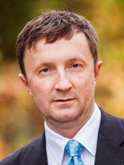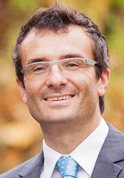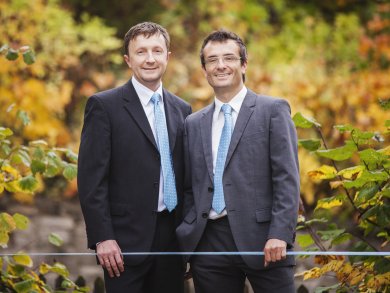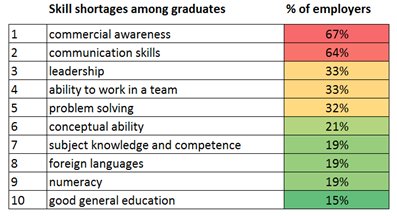A good scientist is not necessarily a good leader or communicator. Soft competencies are of outstanding importance in pursuing a career in public and private research. Moreover, soft skills are necessary in every professional domain. In combination with an ambitious work attitude and a sound personal character, the use of soft-skill tools can result in professional success. Therefore, it is important to implement a personal development plan in one’s career strategy.
The Problem
Work in a modern scientific environment requires many advanced skills that are currently not part of the standard curricula of (German) universities and research institutions. Examples of these skills are project‐, time‐, and conflict management, communication, creativity, group dynamics, intercultural competence, and written and oral presentation techniques.
High-school graduates commonly lack soft skills required for the modern working environment. While graduates are generally well educated and knowledgeable in their study subjects, they fall behind in communication skills, leadership, and the ability to work in a team. If asked, employers of graduates do not rank subject competence as a skill shortage, but rather communication skills, leadership, and the ability to work in a team (Tab. 1).
|
Table 1. High-school graduates commonly lack soft skills required for the modern working environment. |
|
|
The Idea
We, a junior professor at the Institute for Inorganic and Analytical Chemistry, University of Jena (A. Schiller), and a group leader at the German Cancer Research Center (DKFZ) and the University Hospital of Ulm (D. Mertens), have come across many situations like this on our career path and in our daily work. This brought us to the idea of using our knowledge and experience to help other scientists.
When we started our own independent research groups about six years ago, we both searched intently for high-quality professional training. We needed help to establish research funding, recruit and lead co-workers, solve conflicts, and to reflect our work and mistakes in the beginning. To this end, we took part in the Junior Professional Management (JPM) program at the Zentrum für Wissenschaftsmanagement (ZWM, Center for Science and Research Management) in Speyer, Germany. The JPM program offers an excellent platform for researchers at universities and other research organizations. In 2010, we both attended the program for six weekend units.
Enriched by the outstanding teaching units in leadership, conflicts, and communication, the idea of Schiller & Mertens was born: Soft skills can be ideally transferred to scientists by scientists. Scientists can integrate and transfer their expertise very efficiently to the situations of other scientists. It makes sense that scientists who have gathered substantial experience in high-level research, in obtaining funding, and in leading a research group can teach other scientists in the so-called soft competences because they understand the situations, problems, and conflicts exactly.
The Concept
Our own experience as researchers allows us to teach these topics in a way that is focused on the needs of scientists and that uses examples from everyday life in the laboratory and the clinic. In addition, our complementary expertise as soft-skill trainers leads to a synergistic training experience for participants (“1+1 = 3”). This special feature of scientists teaching scientists advanced skills is unique in Europe.
Tools used include many interactive learning situations, interactive group activities, and joint review sessions focused around topics such as how to communicate effectively, how to listen, and how to generate win–win situations in collaborations. Participants learn, for example, that the most difficult person to lead is oneself, that a leader has to be easy to follow, and that the first follower is of immense importance.
High flexibility in the program content allows us to customize courses to meet the special requirements of the customers. The relevant topics are addressed pragmatically and always within the context of (natural) scientific research. Participants in our courses have said that they can directly apply what they learn in our courses in everyday life.
|
|
|
Figure 1. Complementary expertise of Professor Schiller and Dr. Mertens leads to a synergistic training experience for participants. |
An Example
One typical example includes dealing with conflicts when cooperating on a paper for a high-ranking journal: Who will be corresponding author?
The scientific community is small and making enemies is not a wise idea. A good approach is to look at the bigger picture to achieve a compromise. While considering ethical guidelines, there are different ways to solve such a conflict: there could be two corresponding authors, or a follow-up paper where I can be corresponding author. Develop a strategy and think of the overall result instead of focusing on a single “win”.
In our courses, we include a lot of “learning by doing”, which conveys a very intense learning experience that cannot be attained by conventional methodology. Arm wrestling serves as an analogy for the example above, showing that a good strategy for cooperation feels better and makes both of you more successful. We assign our participants wrestling partners at a table and tell them the team with the highest number of completed arm wrestling matches will win. It is always very interesting for us to see how the teams come up with a strategy to win this simple game.
The Courses
We offer on-site courses that are suited to complement the research expertise at the home institution of participating scientists and medical doctors. The current portfolio consists of courses (1 – 3 days), activities (1 – 3 hours), and programs (1 – 3 years). Courses offered are an introductory transferable skills course for scientists, a management course for PhD students, a course on effective communication, and a course about teaching in higher education. Activities include workshops about communication, leadership, or intercultural integration. And finally, our programs are curricula for the full period of a PhD or postdoctoral research.
|
|
|
Figure 2. Feedback is key to improve the training experience for participants. |
So far these courses and activities have been booked by German universities, public research institutions, graduate schools, academic conferences, and publicly funded research networks. Examples include the DKFZ, the University of Jena, Max Planck Institutes, the Max Planck Society, the German Research Foundation (Deutsche Forschungsgemeinschaft, DFG), the German Chemical Society (Gesellschaft Deutscher Chemiker, GDCh), and the Society of German Natural Scientists and Physicians (Gesellschaft Deutscher Naturforscher und Ärzte, GDNÄ). Participants have included PhD students, postdocs, lecturers, principal investigators, and senior scientists.
Graduate academies from German universities offer courses from Schiller & Mertens. Special workshops on communication, collaboration, and career planning can be also found at national (GDCh Wissenschaftsforum 2015 in Dresden, GDNÄ conference 2014 in Mainz) and international conferences (EuCheMS Istanbul 2014).
The People
 |
Professor Alexander Schiller*May 12, 1976 Alexander Schiller received his Ph.D. at the École Polytechnique Fédérale de Lausanne (EPFL), Switzerland, in 2006. He currently holds a Junior Professorship position for photonic materials from the Carl Zeiss foundation at the University of Jena, Germany. He is involved in the DFG research unit FOR 1738 titled “Heme and heme degradation products”, and is associate editor for the journal Reviews in Inorganic Chemistry. From 2015 on, Dr. Schiller is supported by the Heisenberg program of the DFG. |
|
Research Areas In our research group, we are investigating photoinducible nitric oxide and carbon monoxide releasing molecules and materials in combination with remote-controlled delivery. We are also interested in sugar sensing under physiological conditions detection via fluorescence and 19F NMR spectroscopy, and analyte discrimination (chemometrics and acousto-visual discrimination concepts). The third topic includes molecular logic and computing with sensors and light. |
|
|
Selected Publications
|
 |
PD Dr. Daniel Mertens*November 24, 1969 Daniel Mertens received his Ph.D. under the supervision of Peter Lichter at the at the German Cancer Research Center (DKFZ), Heidelberg, Germany, in 2002 and is currently heading two research groups at the DKFZ and the University Hospital in Ulm, Germany. He is coordinating two international research networks (“Resistance in Leukemia” and “CancerEpiSys”). |
|
Research Areas We are interested in the molecular mechanisms that cause leukemia and lymphomas. The scope of our research projects ranges from the elucidation and diagnostic applications of epigenetic oncomechanisms to the characterization of leukemia‐specific signal transduction pathways in the malignant cells and the interaction with the nonmalignant microenvironment. |
|
|
Selected Publications
|
- Website of Schiller & Mertens
- Scientists need more,
Gesellschaft Deutscher Naturforscher und Ärzte e.V. 2014.
Interview on the general concept (Video in German)







